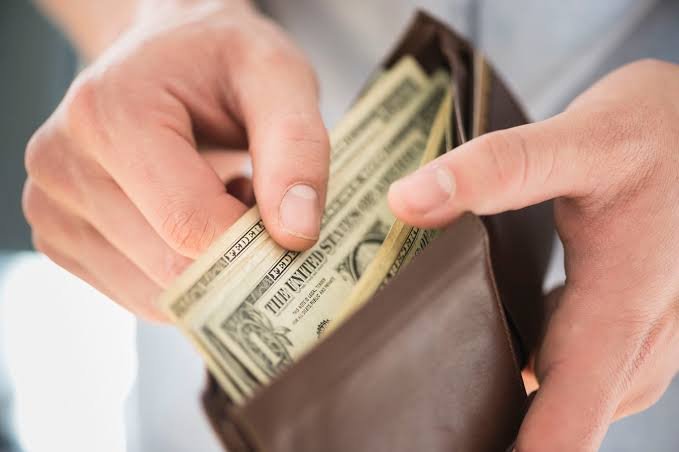The religion of Allah, Islam, has mandated the true believers among Muslims to believe that everything belongs to Allah. Because wealth also belongs to Allah, money should be used responsibly. It is also believes that Muslims must be compassionate because everyone is a special creation of Allah.
In Islam, money has no intrinsic value – money, therefore, cannot be sold at a profit and is permitted to be used as per Shariat only. Islamic banks work on the principles of an interest-free banking.
“The parable of those who spend their substance in the way of Allah is that of a grain of corn; it grows seven ears and each ear has a hundred grains. Allah gives manifold increase to whom He pleases; and Allah cares for all and He knows all things.”
The Prophet (PBUH) said, “the Lord’s commandment for every one of His slaves is, ‘Spend on others, and I will spend on you'”(Bukhari, Muslim). It helps remove the problems of ordinary life and beyond. The Prophet said, “verily charity appeases the wrath of Allah and eases the sufferings of death” (Tirmidhi)
Those who spend their wealth [in Allah’s way’] by night and by day, secretly and publicly – they will have their reward with the Lord. And no fear will there be concerning them, nor will they grieve. Sutrat Al-Baqarah 2:274
Muslims are warned in the Quran to be on guard against greed. A Muslim should not save and hoard great sums of money, but should distribute it to those who are in need of it.
However, In suratul Hadid, Allah reflects on the virtue of Spending in Islam, including the benefits that awaits those who spend on course of Allah and the punishment that awaits the disbelievers.
In suratul Hadid, Allah said;
﴿مَّن ذَا الَّذِى يُقْرِضُ اللَّهَ قَرْضًا حَسَنًا﴾
(Who is he that will lend Allah a handsome loan:) `Umar bin Al-Khattab said that this Ayah refers to spending in Allah’s cause. It was also said that it pertains to spending on children. What is correct is that it is more general than that. So all those who spend in the cause of Allah with good intentions and a sincere heart, then they fall under the generality of this Ayah. This is why Allah the Exalted said in another Ayah:
﴿مَّن ذَا الَّذِى يُقْرِضُ اللَّهَ قَرْضًا حَسَنًا فَيُضَاعِفَهُ لَهُ﴾
(Who is he that will lend Allah handsome loan: then (Allah) will increase it manifold to his credit (in repaying),) and in another Ayah,
﴿أَضْعَافًا كَثِيرَةً﴾
(many times) (2:245), meaning, being handsome reward and tremendous provisions: Paradise on the Day of Resurrection. Ibn Abi Hatim recorded that `Abdullah bin Mas`ud said, “When this Ayah,
﴿مَّن ذَا الَّذِى يُقْرِضُ اللَّهَ قَرْضًا حَسَنًا فَيُضَاعِفَهُ لَهُ﴾
(Who is he that will lend Allah handsome loan: then (Allah) will increase it manifold to his credit (in repaying),) was revealed, Abu Ad-Dahdah Al-Ansari said, `O Allah’s Messenger! Does Allah ask us for a loan’ The Prophet said,
«نَعَمْ، يَاأَبَا الدَّحْدَاح»
(Yes, O Abu Ad-Dahdah.) He said, `Give me your hand, O Allah’s Messenger,’ and the Prophet placed his hand in his hand. Abu Ad-Dahdah said, `Verily, I have given my garden as a loan to my Lord.’ He had a garden that contained six hundred date trees; his wife and children were living in that garden too. Abu Ad-Dahdah went to his wife and called her, `Umm Ad-Dahdah!’ She said, `Here I am.’ He said, `Leave the garden, because I have given it as a loan to my Lord, the Exalted and Most Honored.’ She said, `That is a successful trade, O Abu Ad-Dahdah!’ She then transferred her goods and children. The Messenger of Allah said,
«كَمْ مِنْ عَذْقٍ رَدَاحٍ فِي الْجَنَّةِ لِأَبِي الدَّحْدَاح»
(How plentiful are the sweet date clusters that Abu Ad-Dahdah has in Paradise!)” In another narration, the Prophet said,
«رُبَّ نَخْلَةٍ مُدَلَّاةٍ، عُرُوقُهَا دُرٌّ وَيَاقُوتٌ، لِأَبِي الدَّحْدَاحِ فِي الْجَنَّة»
(How many a date tree that has lowered down its clusters, which are full of pearls and gems in Paradise for Abu Ad-Dahdah!)





